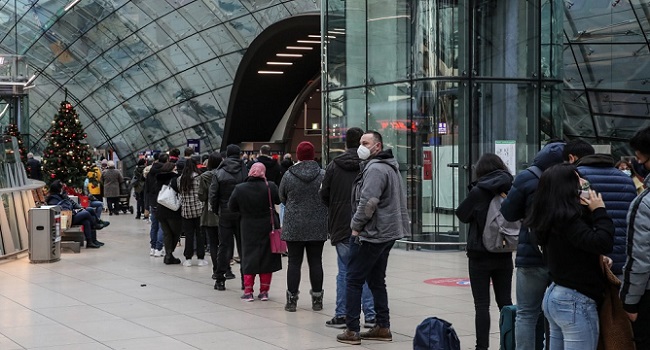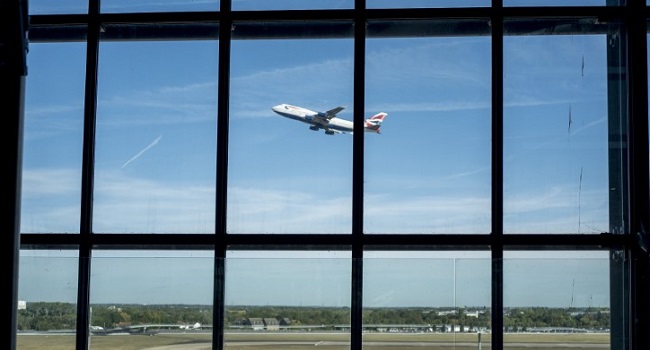
Germany will end most government restrictions to fight the coronavirus pandemic in March, according to a draft official plan seen by AFP on Monday, as new infections rates ease.
Two years after the start of the outbreak in Germany, curbs to prevent contagion will begin falling away.
As a first step, contact restrictions will ease allowing more to meet privately, while access to shops will be open to all without checks on whether the individuals are vaccinated or tested.
READ ALSO: Ukraine Vows To Keep Airspace Open Despite Russia Threat
From March 4, access to restaurants will be open to unvaccinated people too if they show a negative test.
In a final step, “broad restrictions of social, cultural, and economic life should be gradually lifted by the start of spring on March 20, 2022,” said the draft document to be approved by federal and state leaders on Wednesday.
After that date, Europe’s top economy would rely on “basic protection measures” including “in particular the wearing of medical masks” in public.
Rules requiring employers to allow staff to work from home if possible would also be lifted at that time.
For several weeks, Germany has restricted access to bars and restaurants to people who have received a booster jab of the coronavirus vaccine or who are tested on top of being fully vaccinated or recovered.
Contact restrictions are also in place keeping private gatherings to 10 people, or two households if an unvaccinated person is present.
Chancellor Olaf Scholz is due to meet with leaders of Germany’s 16 states on Wednesday to agree the next steps on dealing with the pandemic.
On Monday, Germany reported 76,465 new Covid-19 infections over the last 24 hours and 42 deaths in the second week in a row to show falling rates.
Germany’s states, which have significant autonomy in implementing restrictions from mask-wearing in public transport to home-schooling, have already begun to gradually ease curbs.
AFP




